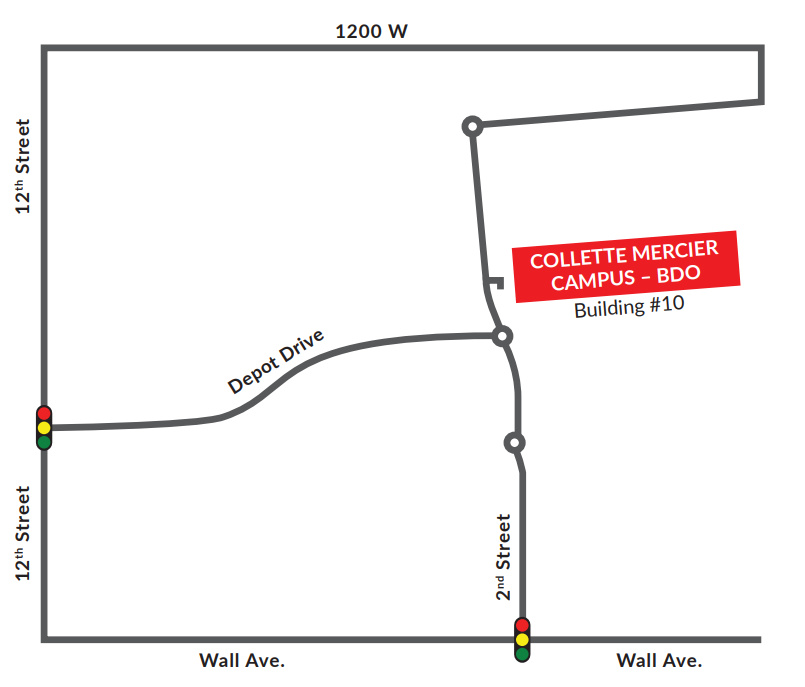Below you’ll find resources that can help you find available employment opportunities in your area. We do the hard work of finding the jobs so all you have to do is apply!
If you would like more assistance finding employment opportunities, schedule an appointment with one of our Career Service Specialists.
Check out our online student job board for a list of current job openings throughout the Northern Utah area.
While you are searching for a job and before your interview, make sure to research the company online. Employers like to know that you care enough about their organization to research it ahead of time. Go into your interview knowledgeable about the company’s products/services offered, mission statement or philosophy, history and growth, and what makes them stand out from their competition.
Just as a good resume will get you an interview, a great interview is what can get you the job. The purpose of an interview is to allow the employer to get to know you. Each question they ask is designed to give them insight into your skills, abilities, and attitude. It’s a way for them to determine if you will be a good fit within their company. The key to giving a good interview is to practice, practice, practice! Practicing out loud helps you articulate your responses in a professional manner. You can use common interview questions, with family and friends or schedule a mock interview with an OTECH Career Services Specialist.
First impressions are important. Aim for something that looks professional, feels comfortable and that you feel confident in. Make sure you are well groomed, and each garment is clean, wrinkle free and appropriately fitting. A collar shirt, a nice blouse and/or dress pants are all great options. Clean business-style shoes and simple accessories are a classic look. If you’re still not sure what to wear, take your attire a level up from what you would normally wear to the job. Avoid perfume/cologne. Keep your breath fresh with a mouth spray or mint.
Know who you are meeting with and the job title that you applied for. Plan on a committee interview and bring multiple copies of your resume for each person to review. Stop by the Student Success Center to print your resume on high quality paper for free. During the job interview, you will have an opportunity to ask questions. It’s important to develop questions that focus on the company, their needs, challenges, and expectations. To your interview, bring a reliable pen and notebook that includes the questions you would like to ask.
Use the STAR acronym:
Show the employer that you have good time management skills and value their time by being 5 minutes early. Account for possible traffic, weather, parking and give yourself time to turn off your phone and check in at the front desk. Interviews normally can take between 20 minutes to 1 hour.
Using confident and correct body language is essential in an interview. Sometimes it is non-verbal communication that stands out to the employer even more than what you say or what is on your resume – everything from eye contact to your handshake! Stand and sit up straight and tall, listen attentively, make eye contact when being spoken to, be engaged, and speak loud and clear with confidence. Do your best to bring positive energy into the room, be grateful for this opportunity and share your excitement for the field.
Review the job posting for job field related questions. Give examples that prove what you say. For example, “I’m a hard worker”. What makes you a hard worker? Do you make sure to get the job done no matter what? Do you come in early, work overtime or take advanced training in your field?
Talk about relevant skills or processes you have learned on the job, in your personal life, or at school that would benefit the company. Have specific examples of projects you have worked on, how you’ve handled difficult people or situations, and why you feel you would be a good fit for the position and the company.
Employers prefer candidates to ask questions, it shows that you are serious about the position and that you want to make sure you would be a good fit. Here are a few questions to ask:
You’ve worked hard preparing your resume, reference page, and cover letter. You had your interview…that was the hard part! So what’s next? Follow up! Send a thank you email to the interviewer within 24 hours after your interview. Sending a thank you shows that you are willing to take an extra step, and it also allows you to add anything you may have forgotten to mention or fix a mistake you may have made during the interview.
Thank you for taking the time out of your busy schedule to talk to me about the (insert title) position with (XXX) Company. I enjoyed discussing the possibility of working with your organization.
I was very impressed to learn that (something mentioned in the interview).
(Optional Paragraph) After our conversation today, I am certain my skills in (insert skills) will help your organization (something company is needing).
I am very interested in working for you and look forward to hearing from you. Please feel free to contact me at any time if further information is needed. My cell phone number is (555) 111-1111 and my LinkedIn profile is (….)
Thank you again for your time and consideration.
Sincerely,
Your Typed Name
Locations: Student Union building, Room 106
BDO, Room 136
Hours:
Monday – Thursday 8:00 a.m. – 7:00 p.m.
Friday 8:00 a.m. – 4:00 p.m.
801-627-8460
studentsuccesscenter@otech.edu
Location: Student Union 106
Hours:
Monday – Thursday 8:00 a.m. – 6:00 p.m.
Friday 8:00 a.m. – 4:00 p.m.
